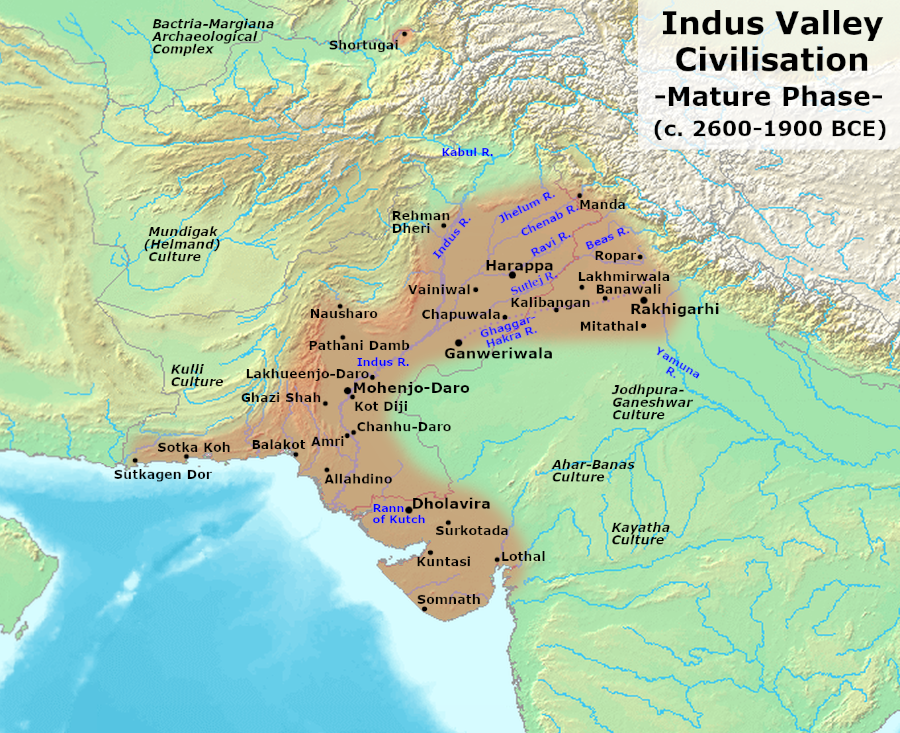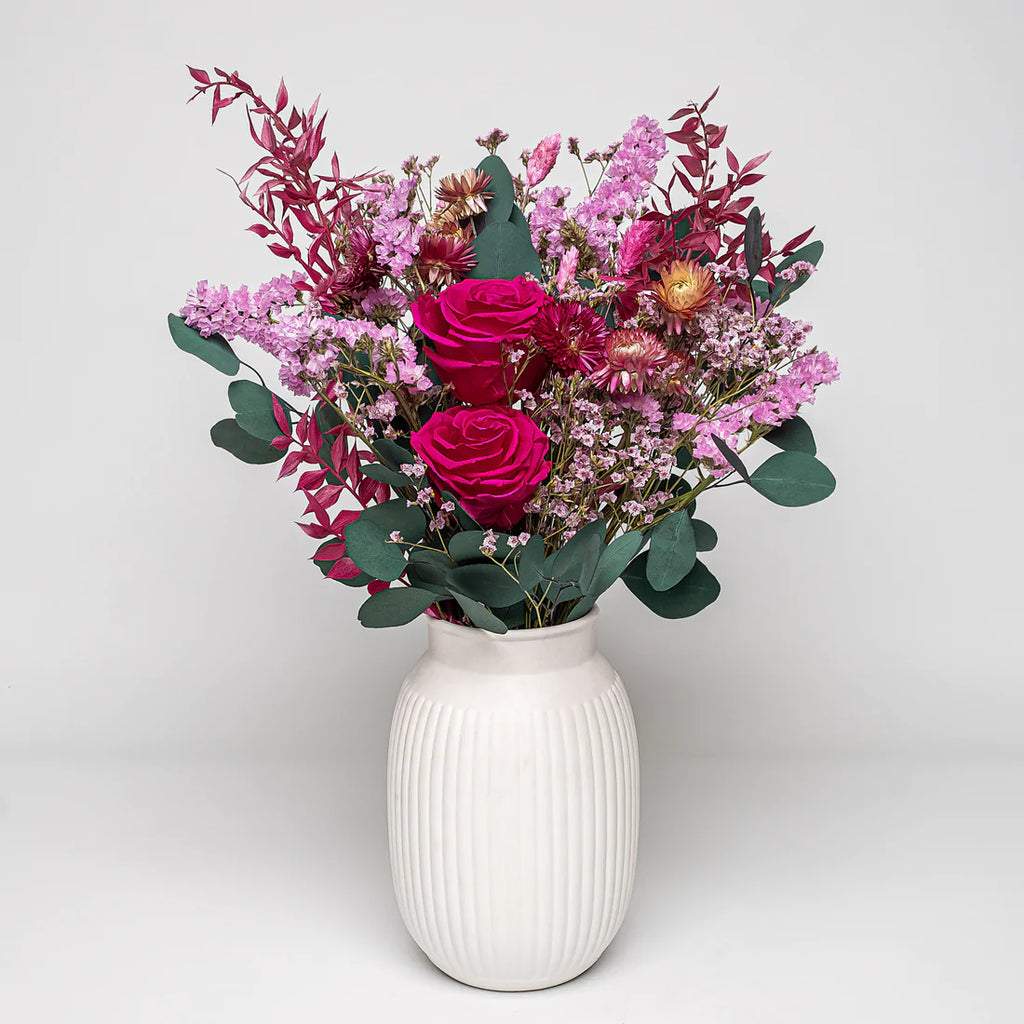Diwali, also called Deepavali, is a festival of lights. Hindus, Jains and Sikhs observe it as a major celebration lasting for five days. In the Hindu Lunisolar calendar, it takes place during the month of Kartika. This lands in the Gregorian calendar around mid-October to mid-November.
The leadup to Diwali is celebrated with cleaning and renovating. It also sees decorating the home with oil lamps called Diyas, usually paired with colourful art circles called rangolis. People spend Diwali wearing their finest clothes. They light fireworks and have large family feasts. Like Christmas for Christians, this is also a gift-sharing event.
The Indian Subcontinent is an incredibly diverse region. This holiday is often a unifying celebration between different religions. But how did these different religions come to celebrate the same festival? To understand this, you must dive into the history of Diwali!

History and Nomenclature
First, it's important to get the origins of Diwali down pat. The word Diwali itself is derived from Sanskrit, one of the oldest languages in the world. Sanskrit is the mother tongue of almost every Indo-European language! Latin, Greek, Gothic, Old Norse: you name it, it's related to Sanskrit!
Diwali comes from two words in Sanskrit. Dīpa, meaning Lamp, light, that which glows. And āvali, meaning a row, range or continuous series. So Diwali translates as "Row of Lights", thus it being a celebration of lanterns and light.
Anthropologists theorise that the Diwali festival is a fusion of harvest celebrations in ancient India. As Hinduism is often cited as the world's oldest organised religion, Diwali is one of the oldest religious festivals ever. Ancient Sanskrit texts reference Diwali as early as the 1st Century CE. Thus the festival as we know it today began taking off post-Christianity.
The celebration is a fusion of harvest festivals. This makes sense, given the time it is celebrated: Diwali coincides with the conclusion of summer, the new moon and the beginning of Autumn. The various celestial events would likely have influenced the early settlers of the Indus River valley. Hinduism likely collated all these obscure pagan rituals. A unifying celebration to bring followers to the faith based on familiar traditions.

Hindus and Diwali
The religious significance of Diwali varies depending on your whereabouts in India and the majority religion of your region. Hindus associated Diwali with the epic story Ramayana when several Hindu deities reached Ayodhya after 14 years in Exile. In the Hindu faith, Ayodhya is a holy city like Jerusalem or Mecca, for Abrahamic religions. The city is the supposed birthplace of Rama, one of the most important Hindu Gods.
Other stories involve other gods. One such story relates Diwali to the story of Krishna, an avatar of Vishnu. He defeated an evil demon near present-day Assam, making Diwali a celebration of good conquering evil. This theme is consistent with other parts of India, celebrating other gods defeating demons to protect good over evil.
The focus on righteousness, good and evil. The celebration of light in the darkness. These peculiarities make Diwali a varied and fascinating celebration. The best Diwali flowers to celebrate this varied celebration would have to be the Fallen Leaves bouquet. These make for the best Diwali floral decorations. These preserved flowers represent the harvest element of Diwali's past and its symbology of bright light against darkness. The bright popping yellows and reds of these preserved flowers contrast excellently against the dark green shrubbery, making these Diwali flowers the perfect gift.

Jainism and its Divergence from Hinduism
Jainism is a religion also from the Indian subcontinent. However, we know very little about its ancient origins or history. The weariness of time has obscured the iconography and scripts of the early Indian civilisations. However, as with Hinduism, it's often stated that Jainism is an eternal religion. Outside of the chronology of humanity. It has existed, and will always exist, forever.
One of the most famous figures in Jainism, Mahavira, was a contemporary of the Buddha himself, giving Jainism a strong connection to Buddhism. Especially with the quest for enlightenment and the peaceful preachings of pacifism.
This, over the centuries, has brought Jainism at odds with other, more proselytising religions. Jainism suffered persecution for centuries. Especially during the Islamic conquests of India. Furthermore, they frustrated Christian missionaries during the colonial era. However, they often served as advisors to the Mughal Emperors. In general, they have a reputation for being peaceful, enlightened people.
The Jain people celebrate Diwali as the anniversary of the Nirvana of Mahavira's soul from the mortal coil of earth. This significance is tantamount to the ascension of Christ in Christianity and is, therefore, a divergence from Hinduism. It celebrates the enlightenment of Jainism's most important figure rather than Gods and deities conquering evil. It highlights Jainism as a religion without pagan creationist gods. One like Buddhism, which represents the liberation of all peoples through spirituality.
Sikhism and Its Modern Take on Diwali
Sikhism is a fascinating religion because of its young age. Unlike Abrahamic religions or other eastern religions, Sikhism originated in the 15th century. Its recent origin makes Sikhism the only major religion founded in the last 1000 years, beating out Islam as the youngest independent religion.
Sikhism was founded by Guru Nanak, born in modern-day Pakistani Punjab. Nanak grew up with a Muslim best friend. He spent his formative years with wandering mystics and religious men. Nanak disappeared suddenly one day. When he returned three days later, he declared, "There is no Hindu, there is no Muslim". After that, he began wandering India, preaching to the tenants that would become Sikhism. Two schools of thought exist that either Sikhism was a gift from God or the social unification of Hindu and Islamic texts for a better India.
Sikhism has since been a disruptive movement in India. It often frustrated Muslim or Hindu administrations. Sikhism further became a key weapon and headache-inducing problem for the British Empire. However, their desire for independence and liberation from the divisions of India was not to be ignored. The Sikhs formed a mighty empire to challenge even the great Mughal Empire. However, they were routed and divided by the British Empire. This ensured that their voices for independence would be strongly heard throughout the 19th and 20th centuries.
For Sikhs, Diwali is not a spiritual holiday but one of national pride. Their version of Diwali, named Bandi Chhor Divas, remembers the release of Guru Hargobind from Mughal prison. It celebrates the day he arrived at the Golden Temple in Amritsar, the holiest place in Sikhism.
However, one cannot ignore the spiritual significance of Diwali from the Hindu origins of Sikhism. A famous martyr, Bhai Mani Singh, was executed in 1738 for celebrating Diwali instead of converting to Islam, further placing Diwali and Sikhism into a rebellious and proud camp.
Flowers for Diwali
The Tender Bloom Sun Dried Flowers are one of the best Diwali flowers to gift Jains. These Diwali floral decorations represent this simple, peaceful religion perfectly. It gives a bright centre to the otherwise warm and darkly coloured piece. These Diwali floral decorations are a centre of peace and hope, like Jainism, following a peaceful existence for eternal happiness.

Diwali flowers for a Sikh
The perfect Diwali flowers for a Sikh would have to be our Pink Rebellion dried flower bouquet. These flowers have a bold and uncompromising visage with their striking pinks and hot-blooded colours. This bouquet is the ideal Diwali floral gift to symbolise a brave person standing up for what they believe in, even facing enemies from all sides.

An Environmentally Conscious Celebration
Diwali is a peaceful time of celebration, no matter its origins. It stands to reason that the gifts you give during Diwali should be equally peaceful and majestic.
That's why Amaranté is so proud to serve an ecological mission. Amaranté's floral decorations are ideal for celebrating Diwali. All our roses and bouquets are carbon neutral and created with longevity and the environment in mind. Unlike fresh-cut flowers, these sun-dried flowers will last years, not days.
Combine that with the fairtrade mission that Amaranté's florists work under, and you have a recipe for a guilt-free floral gift. Why not brighten the world of your friend's lives with flowers that last as long as these old and noble righteous religions?


